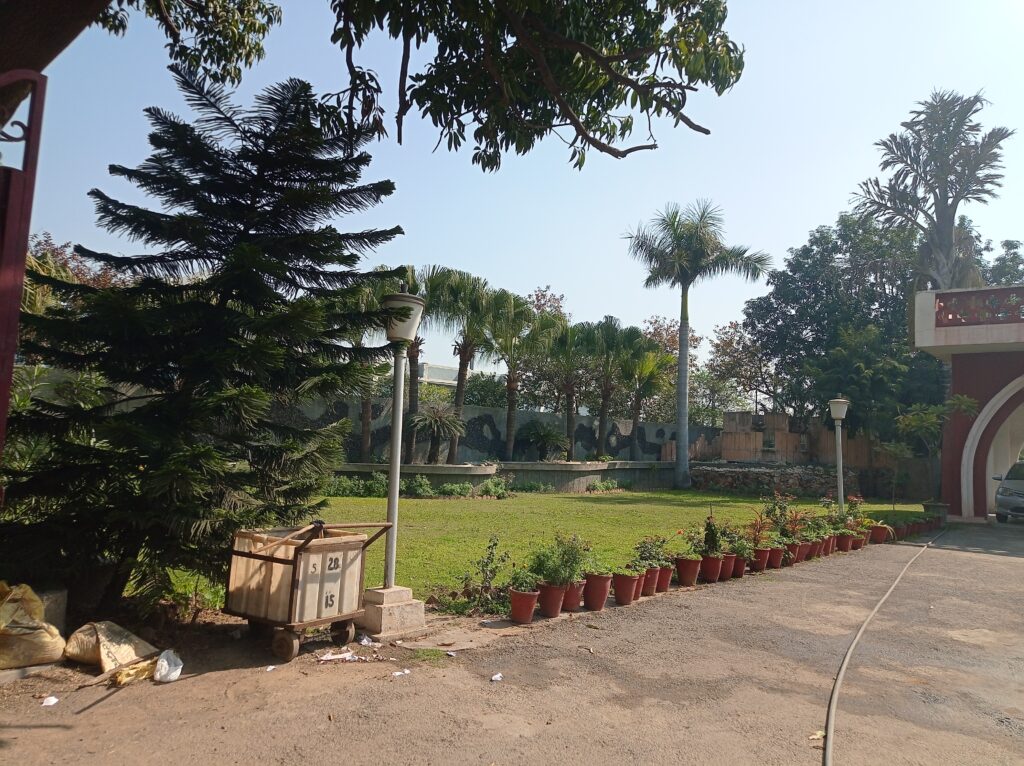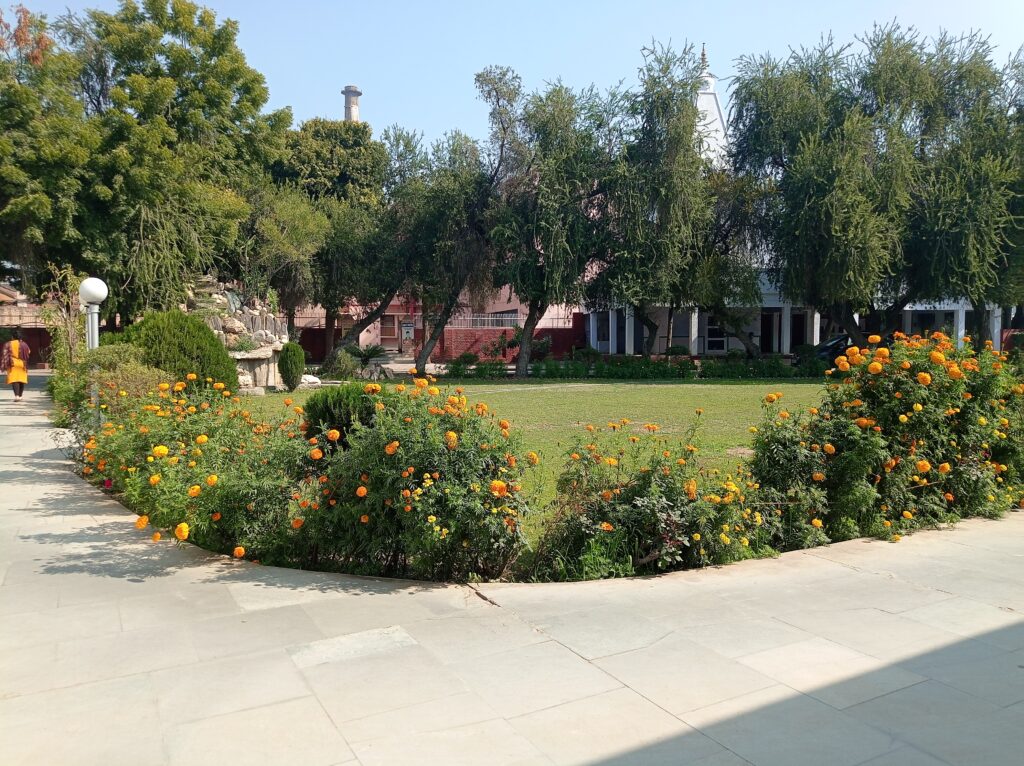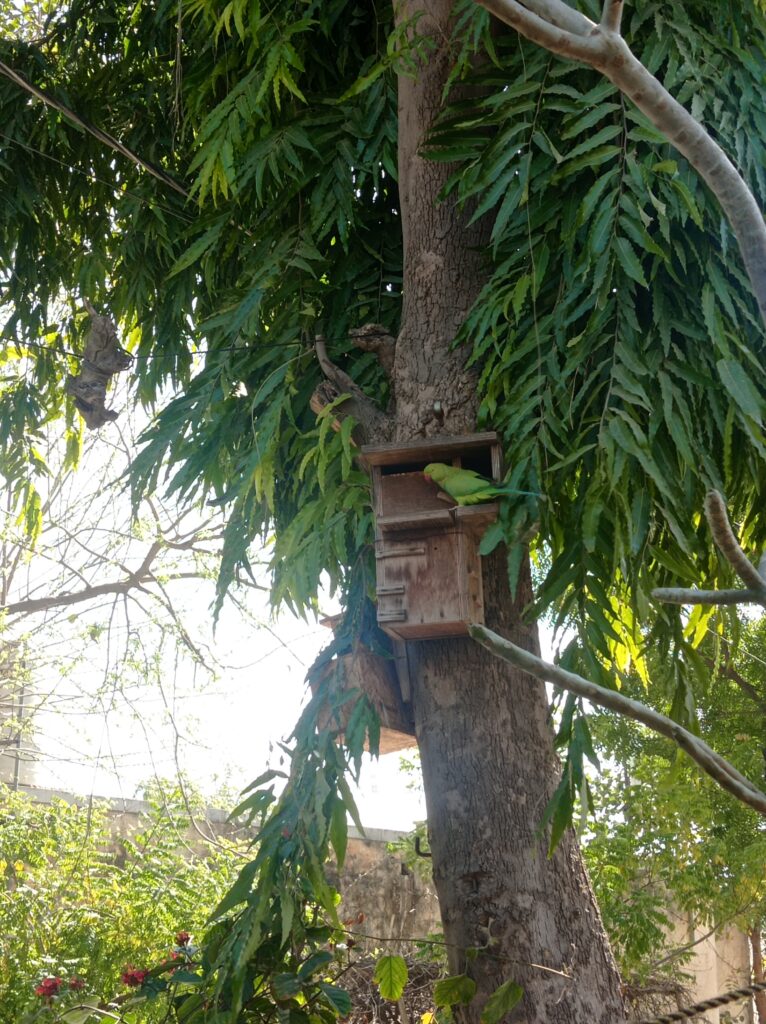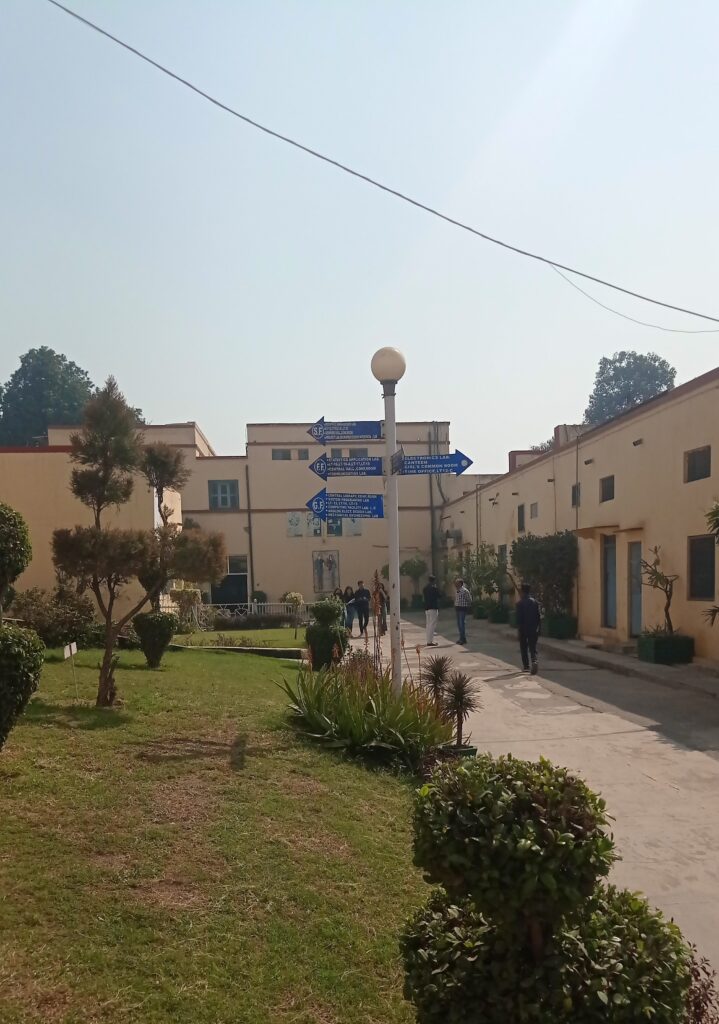Green Policy
The TIT&S recognizes that in pursuing its strategic objectives, in relation to research and teaching, it has a responsibility towards, and should aim to protect and nurture the environment. By exercising proper control over all its activities the Institute will aim to ensure sustainable use of resources and prevent wasteful or damaging practices.
The Institute believes in the philosophy of protecting the environment and ecosystem by every means. Over the last two decades the institute has largely contributed to the cause of environment not only in its campus but in surrounding areas as well. The institute has ensured plantation of trees across the entire campus i.e. the main academic premises, the hostel premises sprawled on a vast area and the residential area. One can feel proximity to nature despite the institute being located close to industries. While the peacocks thrive in a big number in the campus, hornbills, parrots, starlings and other species of birds are also in plethora due to our environmental measures. Staffs are encouraged to protect trees and natural bio-diversity of the campus by all means and wherever possible, in addition to natural habitat, nest-boxes have been installed to help passerine and other birds and squirrels. Due to greenery of campus and presence of a reasonably big pool of water, migratory birds, like storks and cranes, are also spotted. TIT Social Responsibility Initiative (TSRI) the philanthropic initiative of the institute, which translates into concrete practice the ‘Gandhian Ideology of giving back to society’, also spreads awareness on avoiding plastic, planting more trees, using electric vehicles by arranging staff and students to visit different panchayats and blocks.
The TIT&S will aim to manage its operations in ways that are environmentally sustainable, economically feasible and socially responsible i.e. making the Institute a Green Campus where environmental friendly practices and education combine to promote sustainable and eco-friendly practices. The Institute is striving to develop on a self –sustainable basis in the areas of power, water and cleanliness. Therefore, this policy represents an important component of the Institute’s broader sustainability strategy.
This document sets out the Institute’s aims and objectives for safeguarding the environment, and details the organisation and arrangements for implementing and monitoring them.





Specific measures that the Institute can immediately implement :
GREEN LANDSCAPING
Though the flora and fauna in and around TIT&S has been flourishing due to continuous efforts, the Institute intends to implement its Environment Policy more comprehensively for through following measures:
Creation of brick-pots along main walls inside the institute and planting of trees not likely to be disturbed by monkeys.
Planting of quick growth trees to boost air quality in and around.
LIGHTING
Most lighting on campus to be upgraded to high efficiency lighting (such as T5 fluorescent, LED technology, ) with electronic ballasts.
Increased use of day lighting should be considered because use of daylight spaces decreases energy costs and may improve
Lighting, wherever practical, should be controlled by our campus-wide energy management system. Occupancy times, unoccupied period set-backs, and environmental parameters, as well as campus-related (and athletic) activities will be coordinated to ensure that the best possible use (or conservation) of resources is taking
Install solar cells on the Institute
Reduce the brightness of computer
Turn PCs off or into stand-by mode when idle.
REUSING OLD WATER BOTTLES
Reusing old water bottles or purchasing water bottles that one can refill instead of discarding a new bottle after single use.
MINIMIZED USE OF PAPER
Maximize use of paperless technology e. sharing of data /Lecture notes on e-mail etc.
Take Notes Electronically Introduce double-sided printing to reduce paper waste
IN-HOUSE RECYCLING POLICY
The In-house Recycling Policy of the Institute is a unique step towards going green. Since the institute was integrated with a manufacturing facility, the workshop and recycling station both are used to create best out of the waste, whether it is iron, plastic or wood. Using this system, the Institute has achieved substantial waste diversion rate.
E-WASTE RECYCLING
The institute shall follow the past practice of extracting working parts out of old, damaged and broken electronic machinery before dumping in its junkyard for further collection by a designated party who follows green laws.
TRAINING & IMPLEMENTATION:
The institute believes in proper Training and Education of its staff, students and other stakeholders to imbibe the spirit of its Green Policy. If need be, faculty, supporting staff and service technicians shall be imparted skills and knowledge to effectively apply the tech means used to achieve energy savings.
While the success of the Green Policy depends on the complete change of attitude of the institute’s staff, students and stakeholders, effective implementation of the policy also requires an awareness drive to educate the entire campus population. An effective programme which provides at least first hand information on utility costs, trends and user impact will help the institute in achieving its goals. It will enable the campus population to understand the need for this policy, and how it can positively impact them by freeing up money from utilities for educational purposes.
RESOLUTION
The institute has resolved to adopt the following ENVRIONMENTAL POLICY:
- To create awareness of the institute’s Green Policy among student, staff and other stakeholders by circulation through appropriate channels and display on website.
- To sensitise students and staff on environmental measures adopted by the government.
- To create awareness on proper use of water and avoid wastage of water.
- To avoid open disposal of chemicals hazardous to environment or individual.
- Ban on Plastic consumables like polythene bags, plastic crockery etc.
- To segregate different types of waste and arrange its disposal in lawful and ethical manner.
- To arrange disposal of e-waste through appropriate parties.
- To implement sustainable resource management practices, based on reduce, reuse and recycle
- To encourage electronic resources and avoid printing wherever it is possible.
- To educate students and staff to dump dry and wet litter separately in the bins provided.
- To encourage students and staff for use ICT tools for academic purposes like periodic assessment and assignments, projects, sessionals etc.
- To ensure minimum/restricted entry of vehicles in the campus whether in the college or hostel compound.
- Use of public transport, e-vehicles and bicycles by those not residing in the campus.
- To ensure regular cleaning, maintenance and monitoring of water channels leading to the reservoir meant for collecting rain water.
- To monitor and maintain STP on regular basis.
